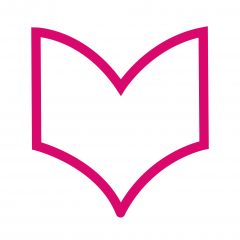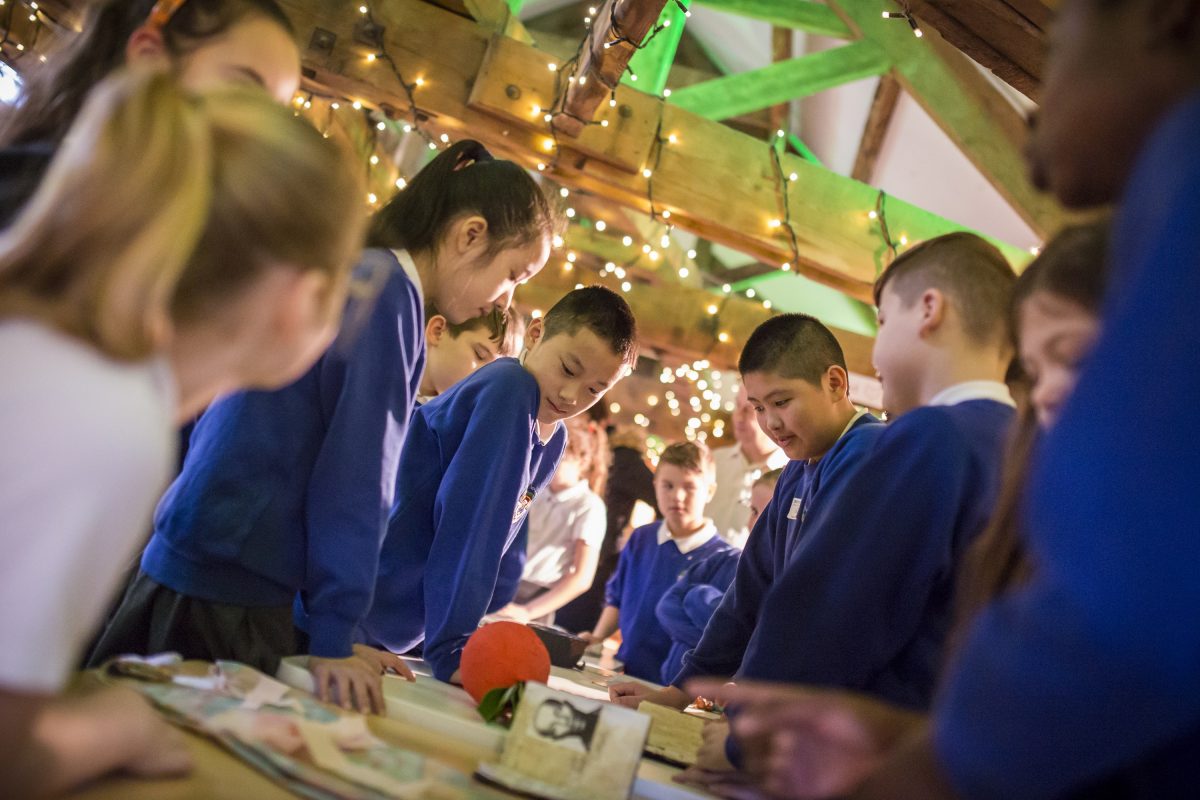As Newcastle University’s Research Centre for Learning and Teaching publish their Schools’ and Partners’ Guide to Community Curriculum Making Through Enquiry and Project Based Learning, this post investigates a recent example of this research in practice. Seven Stories: The National Centre for Children’s Books worked on an archive-based project in partnership with Mountfield Primary School in Newcastle using a drama and arts approach which explored the question: ‘What is freedom?’
Professor David Leat and Ulrike Thomas describe enquiry and project based learning as an approach which “encourages schools to use the resources for education that exist in their community and locality.” Engaging with the community “takes students to new places, allows them to meet new people… this gives them raw material from which to construct more positive identities, overcome stereotypes and prejudices and inform their aspirations.”
This research aligns with Seven Stories’ approach to creative learning and engagement and their objective ‘to explore how to empower children to better shape their own worlds’. It also has synergies with the ‘immersive curriculum’ that Mountfield Primary School are embedding. Seven Stories introduced partners at Mountfield to the Centre for Learning and Teaching’s work on Community Curriculum Making, and together they embarked on a new project exploring this framework.
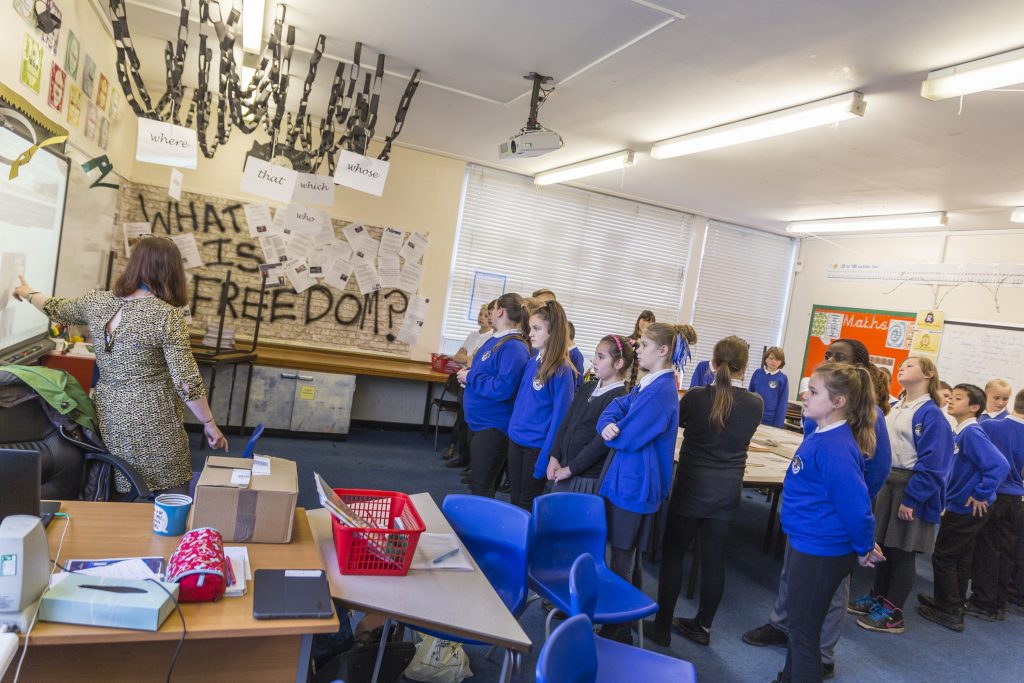
The starting point for the project was an essential question that the children would explore: ‘What is freedom?’. The project built on Seven Stories’ programme of engagement around the Beverley Naidoo collection, and framed the children as ‘researchers in their own journey’.
The Year 6 class spent their first school term studying Beverley Naidoo’s book, Journey to Jo’burg, which has been in print for 30 years and is represented within the Seven Stories Collection. The book was released during Apartheid and banned by the South African Government. It tells the story of black South African siblings, who risk an illegal, 250km journey to find their mother, a servant in a white household in Johannesburg, because their baby sister is gravely ill.
The students, led by Seven Stories’ Learning & Participation Manager Debbie Beeks, explored the themes of the book through drama and writing, examined related items from our archive and enjoyed an opportunity to Skype with author Beverley.
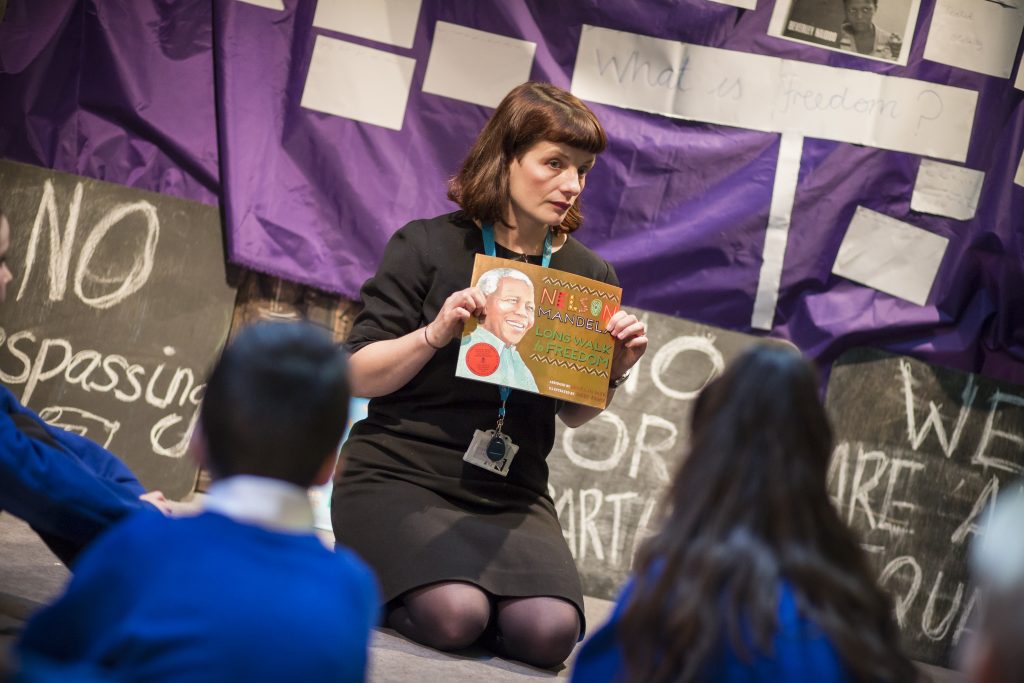 Seven Stories Learning and Participation Manager Debbie Beeks. Image: Seven Stories, The National Centre for Children’s Books, photography by Richard Kenworthy
Seven Stories Learning and Participation Manager Debbie Beeks. Image: Seven Stories, The National Centre for Children’s Books, photography by Richard Kenworthy
The children made mining heritage connections between the North East’s coalmining tradition and the goldmines of South Africa that feature in the story. They met Dave Temple, an ex-miner who led the South African miners’ solidarity campaign with the National Union of Mineworkers. This helped them to make connections between the local and global communities.
The project culminated in the Year 6 children inviting Year 5 and Professor David Leat to visit their pop-up ‘Museum of Freedom’ in Seven Stories’ Attic, which they curated themselves. The objects that they displayed in the Museum of Freedom were created using Seven Stories’ Artefictions approach, which sees the creation of artefacts from fiction, to tell the story in exhibition-form.
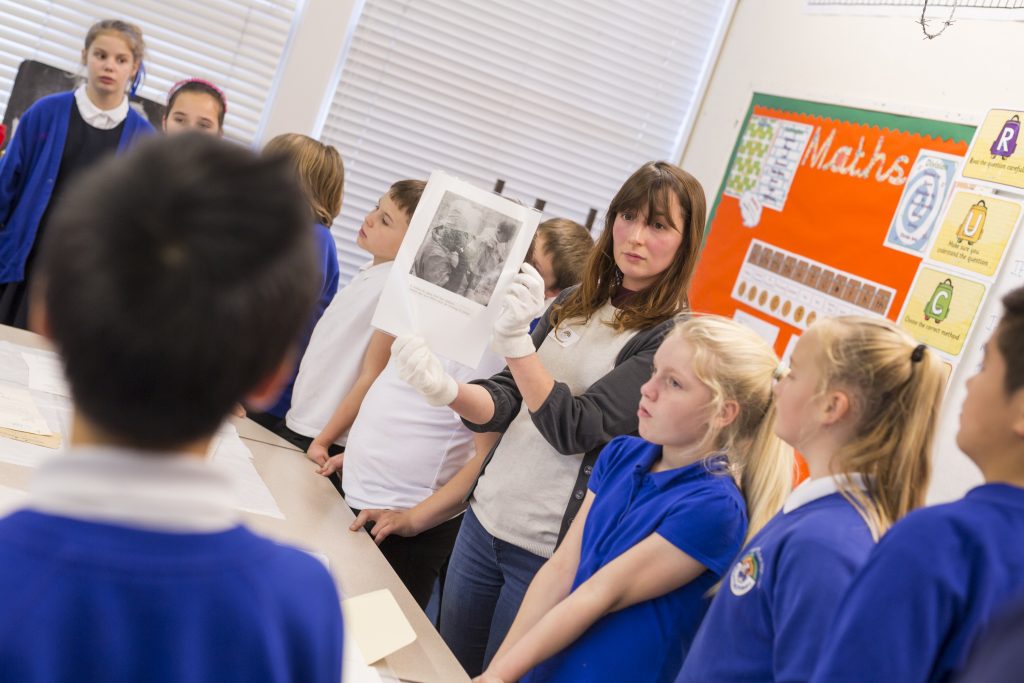
“Interesting. It made me want to learn more.” Year 6 student, Mountfield Primary School
“I feel proud, back then I wasn’t that ‘into it’. Reading Journey to Jo’burg got me into our project.” Year 6 student, Mountfield Primary School
“The Naidoo archive offers such rich and powerful source material for children to explore literary heritage and world history. It’s vital that Seven Stories is able to open up the archive for children to make sense of the world and have ownership of their future narratives. It was a privilege to be part of this project and to research and learn alongside year 5 students and their class teacher at Mountfield.” Debbie Beeks, Seven Stories
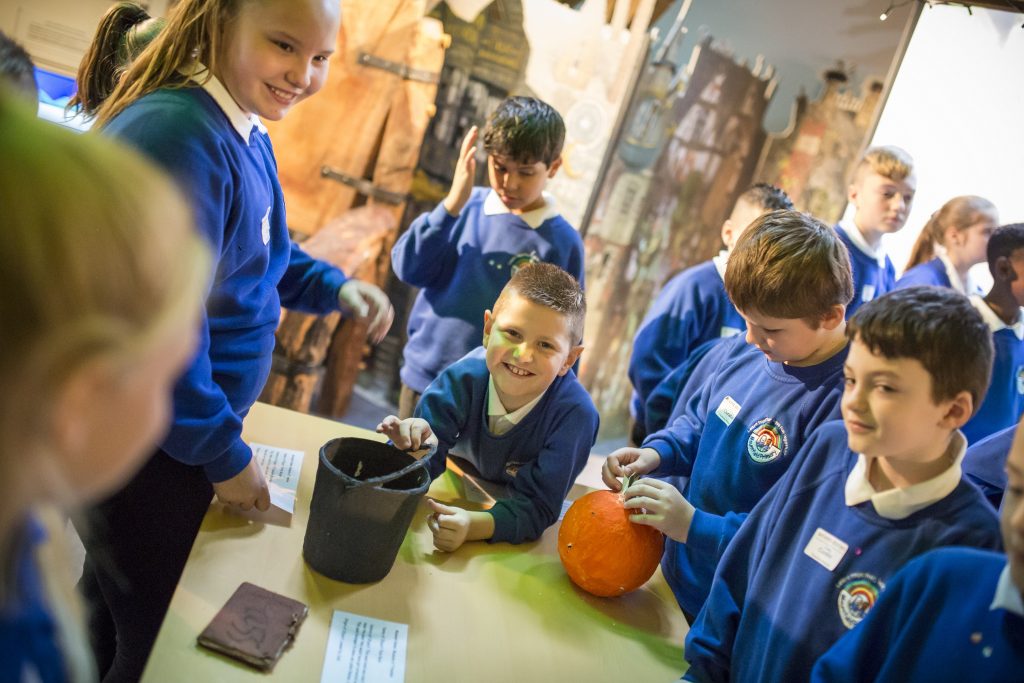
In evaluating the approach and impact of this project, Debbie Beeks and Gary Robson (Year 6 Teacher at Mountfield Primary School) found that the Arts Council England Quality Principles and Newcastle University’s Community Curriculum Making research had complementary characteristics. These gave them a common language and frameworks to explore the rich artistic opportunities that the collaboration presented. The children were able to navigate literature and the arts, from the local to the global, through their own learning journey.
“From talking to and watching the students I am certain that many of them will remember this project into their adult life. This is a brilliant illustration of how ‘going places, like Seven Stories, meeting people like Dave and Debbie, and doing and making things, like the pop up museum’ takes the curriculum onto a another level of meaning.” Professor David Leat, Newcastle University
The Schools’ and Partners’ Guide to Community Curriculum Making through Enquiry and Project Based Learning guide was supported by ESRC Impact Acceleration funding. With thanks to Laura Barrett and Debbie Beeks at Seven Stories, and Professor David Leat and Ulrike Thomas at Newcastle University, for their help with writing this blog post.
